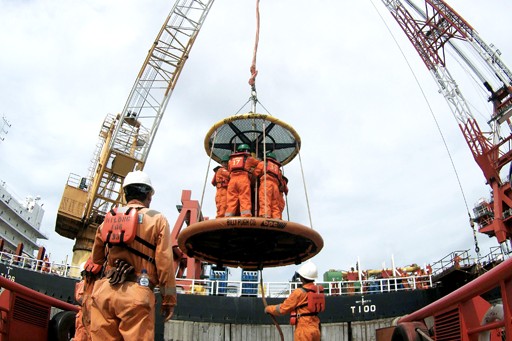Popular Reads
Top Results
Can't find what you're looking for?
View all search resultsPopular Reads
Top Results
Can't find what you're looking for?
View all search resultsAll new oil and gas contracts must use gross-split
Change text size
Gift Premium Articles
to Anyone
All new oil and gas projects must be developed under a gross-split sliding scale instead of a cost recovery scheme.
Energy and Mineral Resources Deputy Minister Arcandra Tahar confirmed that exploration and exploitation activities in new oil and gas contracts would no longer be reimbursed by the government, as was done under cost recovery.
"No new field can use [cost recovery]. All must use the gross-split scheme," he said on the sidelines of a seminar in Central Jakarta on Thursday.
Contractors that really analyze the new scheme will understand that it is much more enticing than cost recovery, which caused long debate between investors and the government, Arcandra explained.
(Read also: State budget no longer burdened by oil and gas activities: Deputy minister)
Furthermore, investors will be allowed to choose between cost recovery and the gross-split scheme for expiring contracts set to be renewed.
Under the new gross-split scheme, profit splits between the government and contractors will “slide” up and down depending on several factors.
Some of the factors include the status of the field, location, reservoir depth, reservoir type, amount of carbon dioxide, use of local industrial content and stage of production.
These variables will be added or subtracted from the base calculation, which the new regulation has set to at least 43 percent for companies in oil projects and at least 48 percent in gas projects.
Previously, investors were entitled to 15 percent of the profit of an oil project and 30 percent of a gas project, with the government scooping up the rest. (bbn)










